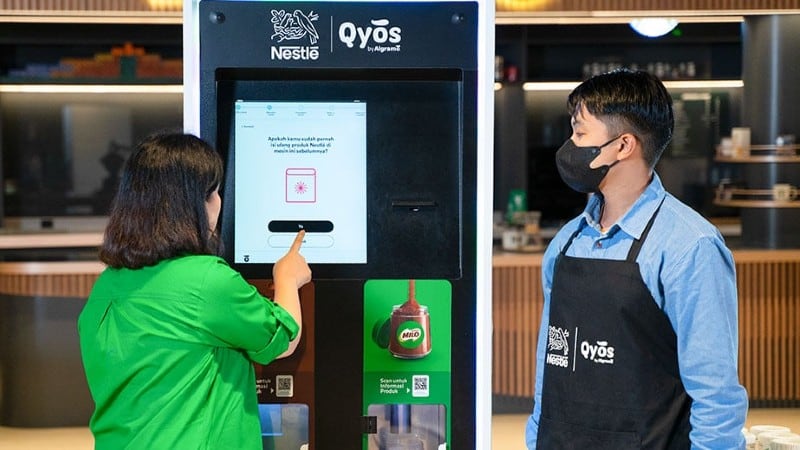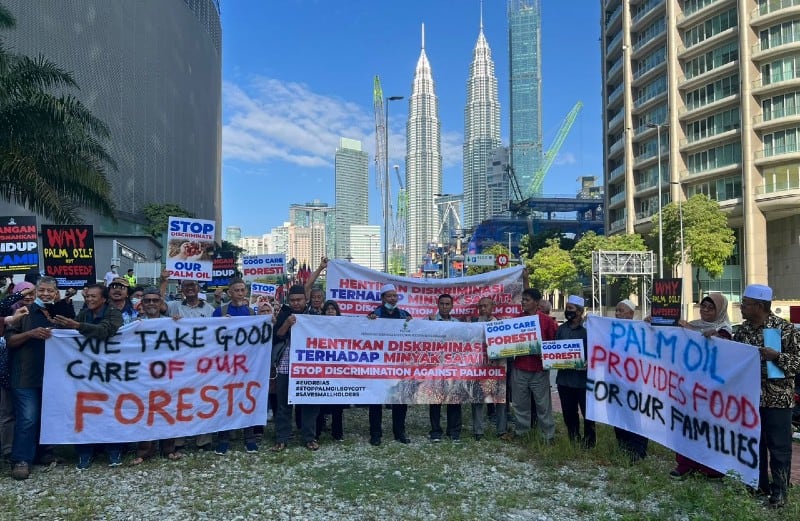Many multinational food and beverage companies from Nestle to Mondelez to Coca-Cola and more have drawn up and committed to net zero carbon emission strategies in the name of environmental sustainability over the past few years.
But in order to bring these net zero commitments beyond just another trend or buzzword to attract consumers, and truly make these a part of company strategy, it is crucial to keep these strategies in line with business strategies, so it will make sense to keep these going even if the hype dies down.
This was the conclusion of an expert panel held virtually by the Roundtable on Sustainable Palm Oil (RSPO) discussing the importance of moving past commitments when it comes to net zero emissions, comprising Sime Darby Head of Downstream Sustainability Mark Wong, Council of Palm Oil Producing Countries (CPOPC) Director of Strategy and Policy Dr Puah Chiew Wei, IOI Corporation Group Head of Sustainability Dr Surina Ismail and Koltiva Program Manager Luca Fischer.
“Net zero has clearly become a major buzzword in the food sector especially since COP26, and this buzz is what has driven everyone to feel like they need to get on board with this trend,” Dr Puah told the floor.
“But what food and beverage companies need to be aware of is that there is the risk of getting on board, but not having the investment portion or capability to back it up sufficiently for the long term, which then makes this ironically unsustainable.”
The only way to ensure these net zero strategies can remain in play for the long term is to build them into a company’s business strategy, which calls for a commitment beyond dates such as 2025 or 2030, but far more far-ranging implementation.
“Making the mention of net zero is one thing, but ensuring that the integration of this makes business sense and there is a plausible commercial business case behind it is another thing,” Wong said.
“One area which a lot of firms have problems with is the latter, because this commercial business case for net zero needs to be very in depth and require a lot of forward planning, especially when pitching this to investors, financiers, shareholders and creditors who will be asking a lot of tough questions.
“So what this means is that a values-based proposition needs to be developed from the very beginning for this business case, and this must be thought through in detail with more insight on the actual practical steps for long-term implementation instead of cobbling something together just to hop on the net zero trend.”
Commitment vs mission
The panel also debated the value of making commitments as opposed to investing more on necessary steps for practical implementation such as digitalisation and traceability.
“Technology is the most important aspect when it comes to onboarding more firms beyond just the multinationals to achieving sustainable operations,” Fischer said.
“The challenges are very clear as it is for the big firms, particularly a lack of baseline data, and this is even more prominent for the smaller firms.”
Fischer’s firm Koltiva works with brands such as Nestle, Mars, Cargill, Golden Agri and more to provide the technology required to improve palm oil traceability in their supply chains.
“The complexities of reaching net zero emissions increase when you realise that it is not merely a matter of reduction, but also removal,” Dr Surina added.
“This is intensified for larger organisations that deal with many layers in their supply chains, as not only do the practices need to be put in place for us but also for the suppliers that we work with.
IOI Corporation is one of Malaysia’s largest conglomerates, producing not only a wide range of palm oil and related products for B2B trade but also consumer products under the Century brand.





